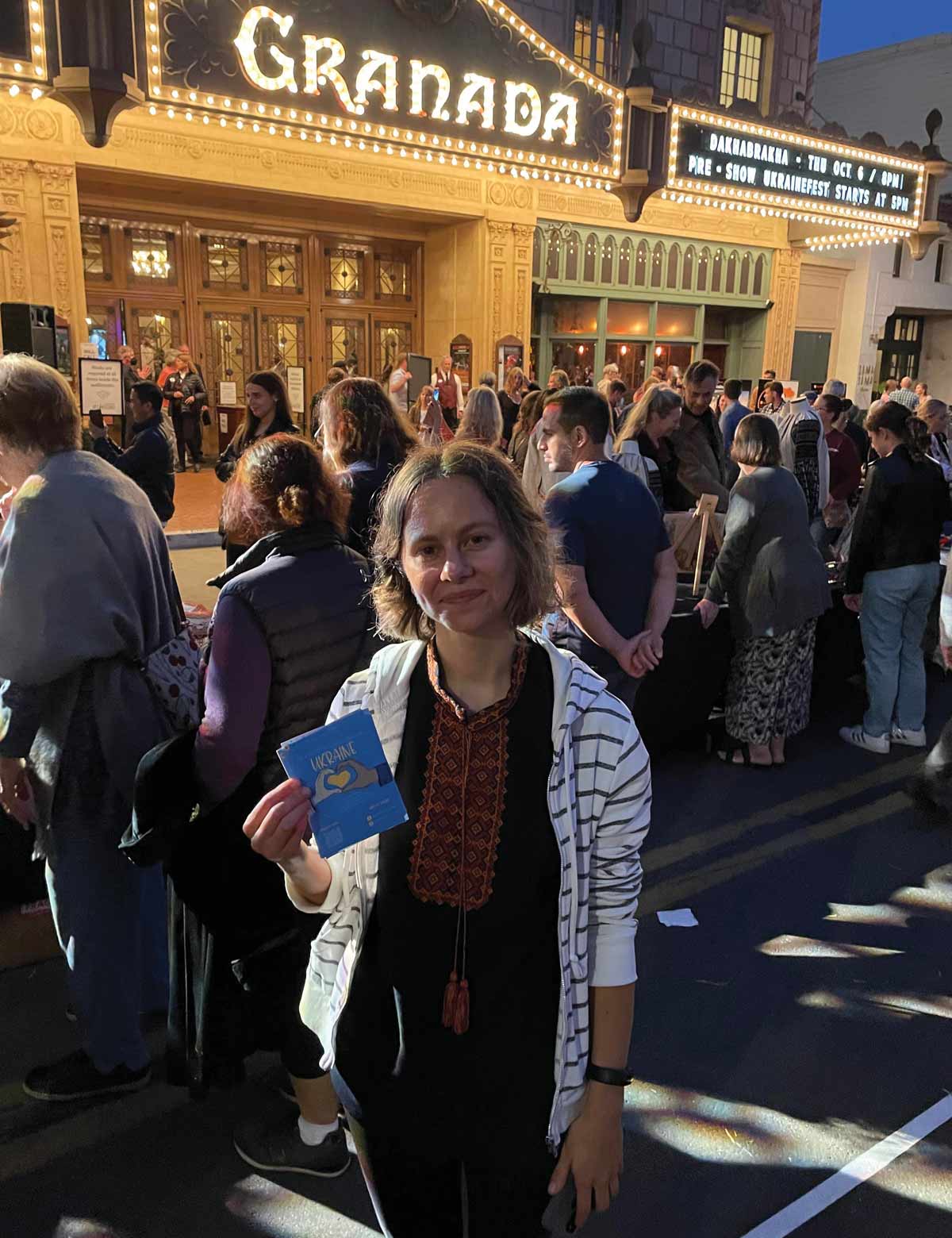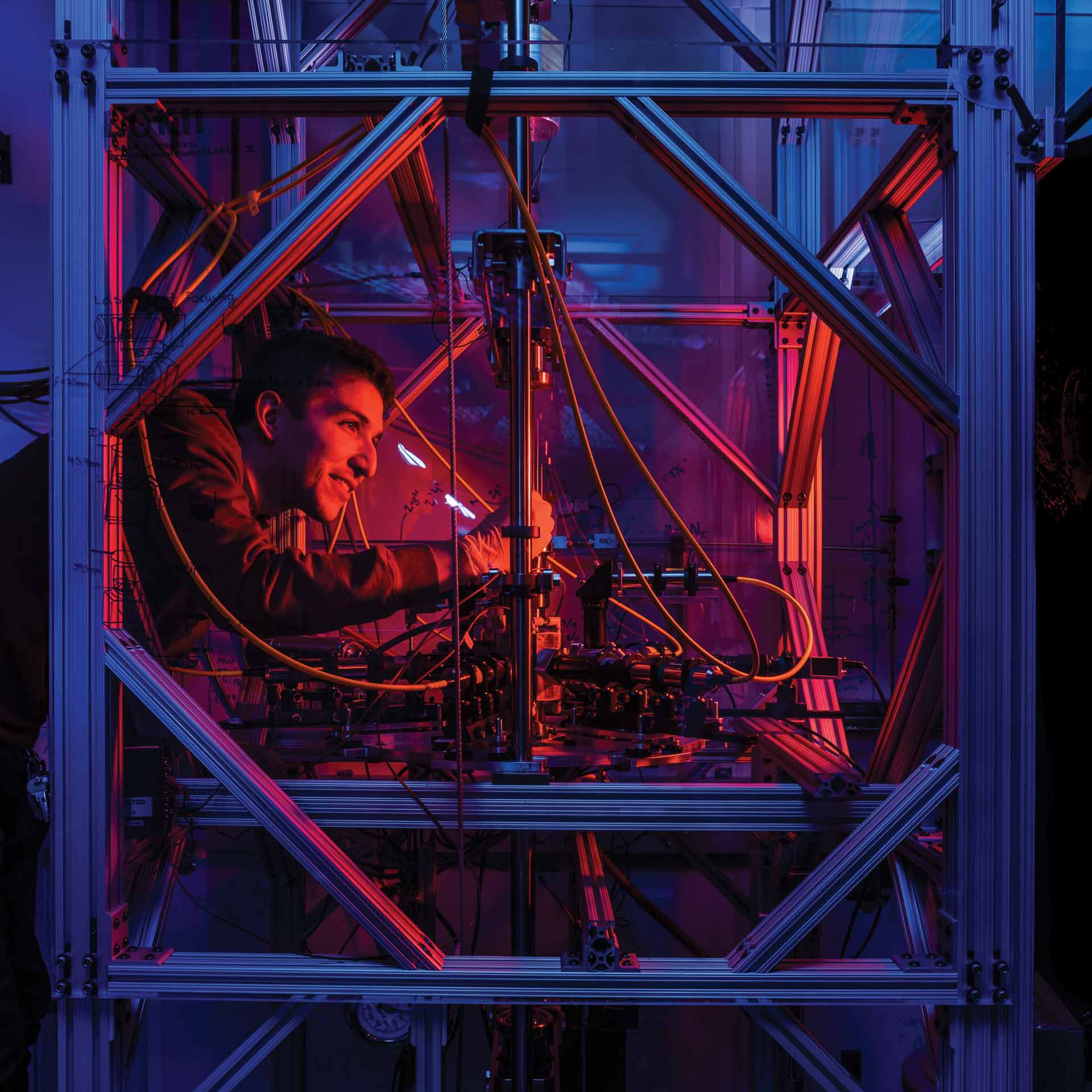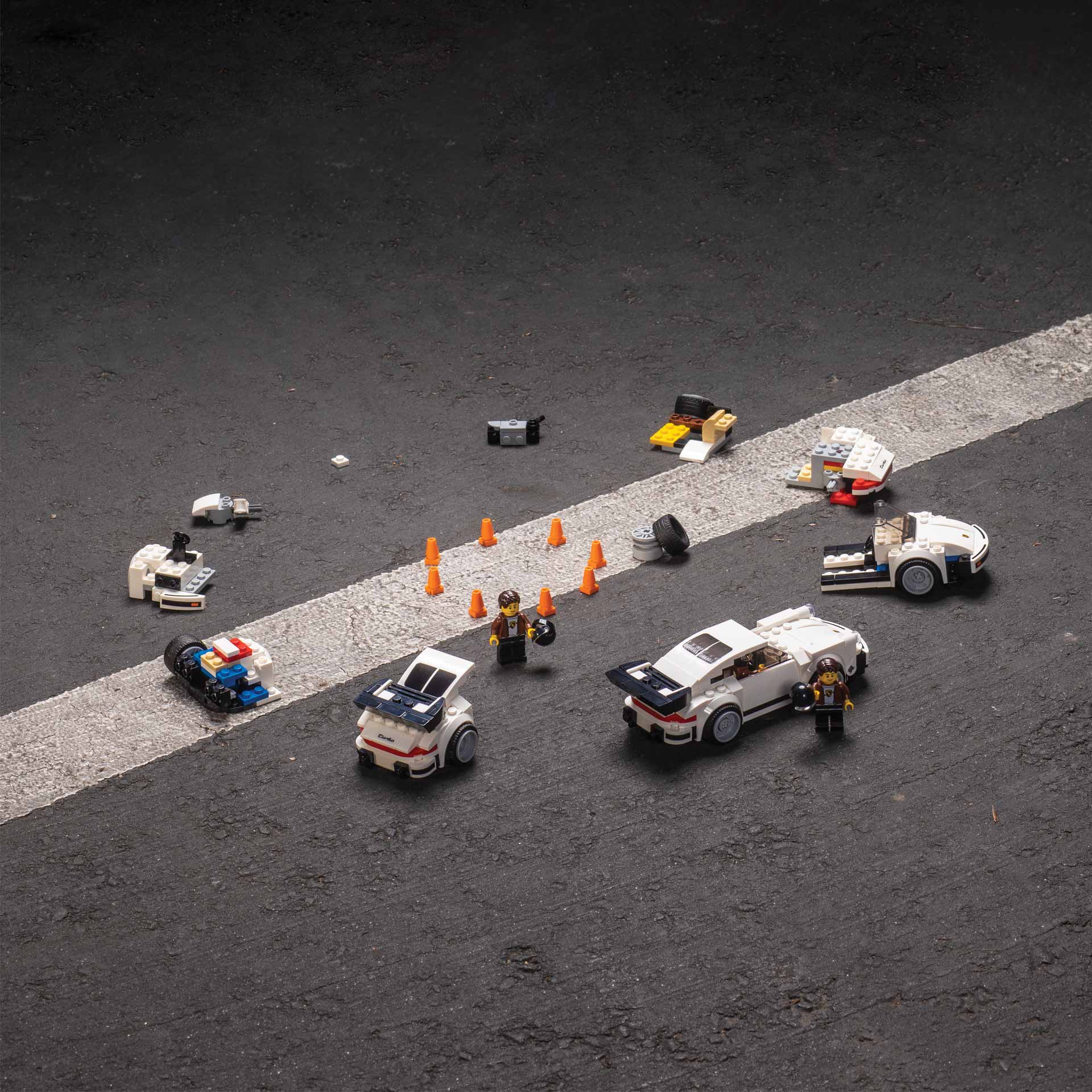What do you do when you’re overseas and you find out that your home country has been invaded? That was the unfathomable question postdoctoral researcher Mariya Romanova was faced with last February when she learned that Russian forces had crossed the border into Ukraine.
“I was shocked,” says Romanova, who works in chemistry and biochemistry at UC Santa Barbara and at the Quantum Foundry. Her hometown, Kharkiv, near Ukraine’s northeastern border with Russia, was among the first to be attacked, with Russian troops firing long-range artillery into the city.
Her next thought? “I had to get my family out of there,” she says. And so as invading troops advanced into the country, Romanova focused on getting her mother out of the line of fire. As with many overseas Ukrainians, communication with family back home became a precious lifeline as she saw news of attacks, shelling, destruction and war crimes.
“I felt helpless,” she says. “I also felt guilty because I was outside and wasn’t there to help.”
She wasn’t alone.
At an American Physical Society meeting in Chicago, Romanova encountered other scientists, Ukrainian and Russian, similarly shocked and feeling powerless to do anything about the situation. By the third week of the invasion, about 3 million Ukrainians had fled into neighboring countries — a full-blown refugee crisis.
Inspired by the desire to help and the solidarity expressed at that meeting, Romanova and some fellow scientists formed the nonprofit Scholars for Ukraine, established to send aid and to bolster humanitarian efforts in the war-torn area.
Using their trusted connections, members of the collective of expat Ukrainians and Russians are trying to fill local gaps in humanitarian aid that are not covered by broader efforts. The group includes researchers working at UC Santa Barbara, Stanford, UC Berkeley, Purdue, Vanderbilt, Cornell, Princeton, the University of Wisconsin-Milwaukee, Syracuse, Yale, Boston University, MIT and Caltech. They are collaborating with the larger humanitarian organization Nova Ukraine to establish and maintain nonprofit status.
Scholars for Ukraine is focused specifically on helping Ukrainians endure the horrors of war by contributing to four local organizations: Station Kharkiv, which delivers food and medication to residents in Kharkhiv’s bomb shelters; United for Ukraine, which works to get supplies to healthcare providers; New Level, a Rotary Club branch that distributes aid while funneling the skills of its volunteers toward the needs of the people; and Dnipro Fund, which raises money to help healthcare providers treat those wounded in the conflict. All the organizations provide assistance to refugees and displaced individuals.



